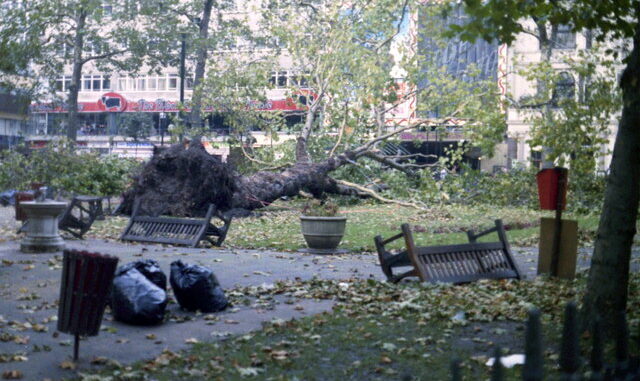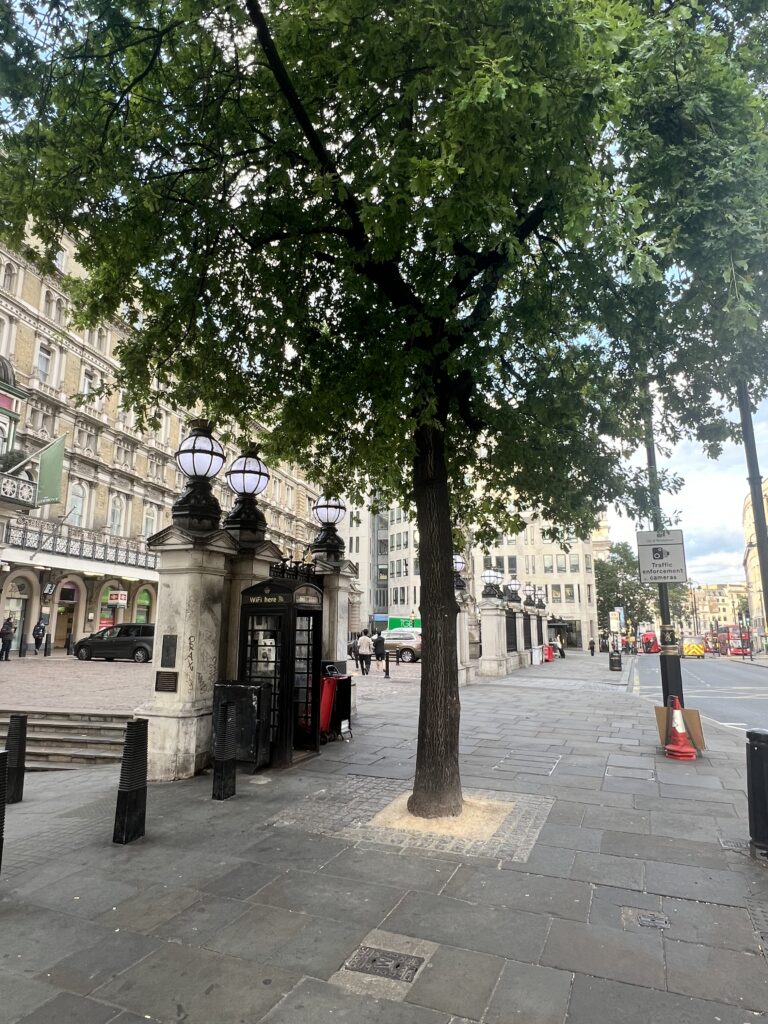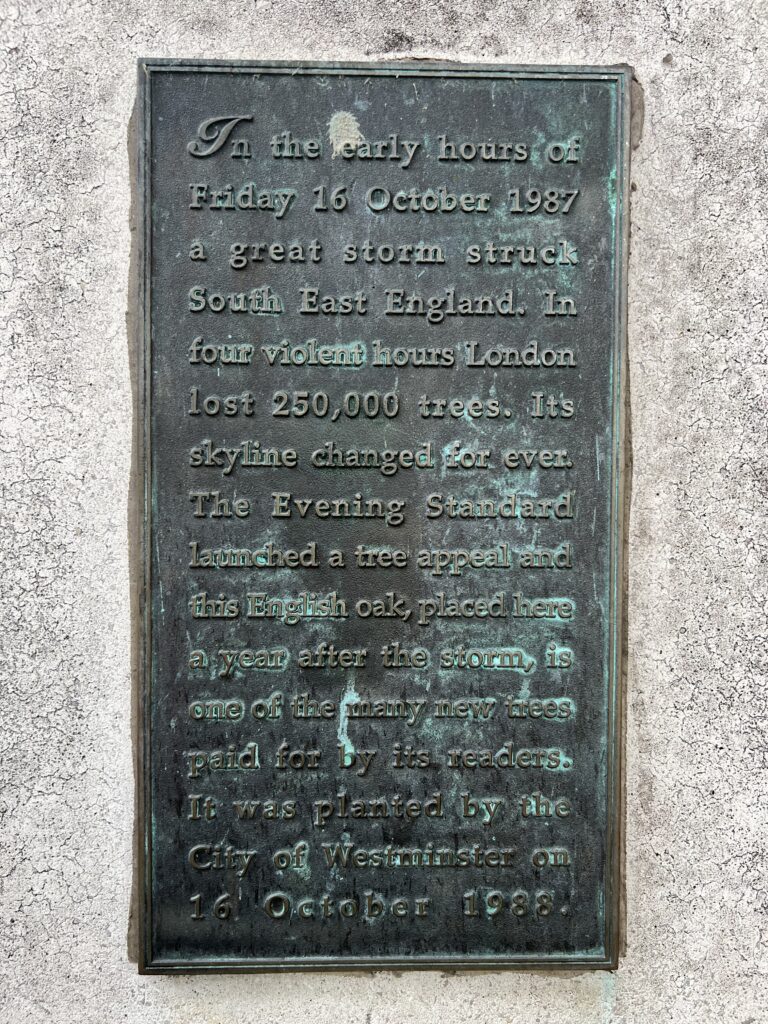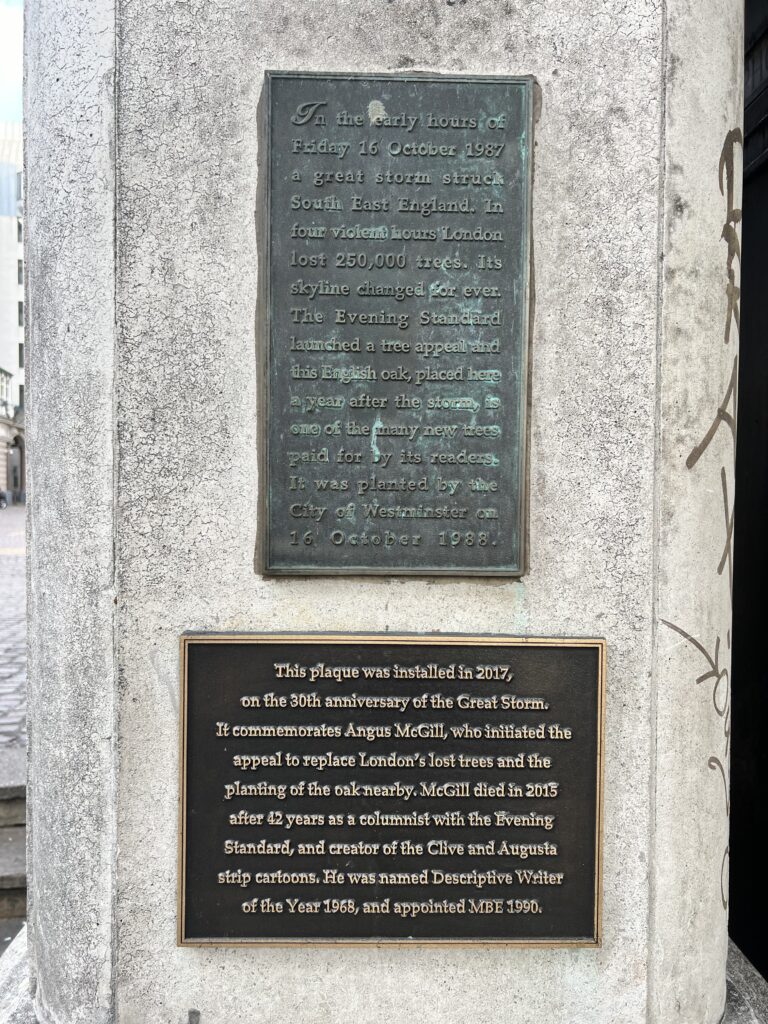
It has been estimated (by whom, I have no idea, but let’s roll with it), that London has more trees than people.
That means more than 9 million of our arboreal friends in greater London’s commons and woodlands, parks and gardens, and lining our streets from expensive neighbourhoods in the centre to the suburbs and beyond.
And trees are Good News – they provide shade for us, habitats for birds and other wildlife, and help mitigate excess rainfall as well as absorbing pollution. Blue Crow Media do one of their rather excellent maps of the Great Trees of London, and the Trees for Cities list of 61 Great Trees can be seen here. (I wrote about the Brunswick Plane tree here.)
In living memory (by which, of course, I mean my lifetime in the capital) the biggest disaster to hit the city’s green canopy was the night of 15/16 October 1987, the “Great Storm”.
This saw winds in excess of 100mph sweep across the south east of England in the wee small hours, bringing down an estimated 15 million trees, and blocking roads and rail lines right across the capital.
A plaque by Charing Cross station informs us that some 250,000 trees were lost in London (just google “Great Storm London” to see some of the destruction and a wide selection of photos of flattened cars).
That plaque commemorates an appeal by the Evening Standard to raise funds to plant trees to replace some of those lost. Apparently around £60,000 was donated, and one of these new trees was an English oak that stands of the Strand at the top of Villiers Street.
Planted a year after the storm on 16 October 1988 it is a living (and growing) commemoration of an event that is already 37 years (and growing) in the past.
A plaque on the station wall has details about the tree and the appeal and another was added in 2017 to commemorate the instigator of the appeal, a Standard columnist called Angus McGill. The 47 Shoe Lane blog has more info about him and the result of the appeal and its photo caption calls the tree ‘the McGill oak’, which is a designation I intend to use hereon in.




